ODC: Unveiling cutting-edge digital skills
ESG Beneficial for Business: ABSA

Hollard:

Empowering Botswana artists and entrepreneurs
Inspiring Growth Mind-set at Absa Life






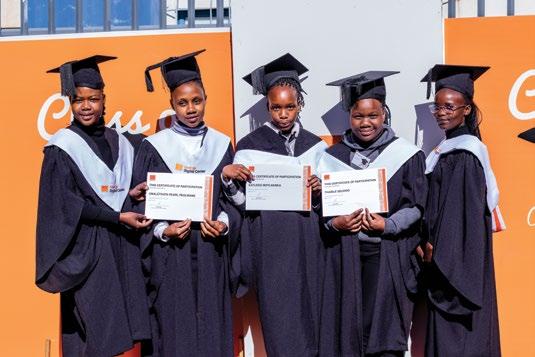

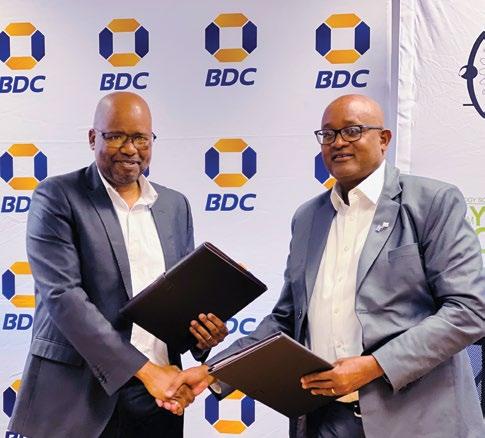

ODC: Unveiling cutting-edge digital skills

Hollard:

Empowering Botswana artists and entrepreneurs
Inspiring Growth Mind-set at Absa Life










Comfort is knowing you and your family are covered. Afford a dignified send-off for yourself and your loved ones with the Monametsi Funeral Cover, while easing the financial burden during a difficult time.
Get peace of mind, and cover between P10 000 - P50 000 with Monametsi Funeral Cover.
AGE OF ENTRY:
• Minimum - 18 years
• Maximum - 75 years old
WHO IS COVERED:
• Yourself
• Spouse
• Children
• Parents
• Extended family
BENEFITS OFFERED:
• Life Cover
• Funeral Cover
• Accidental Death Income
• Death Income
HOW TO SIGN UP FOR MONAMETSI:
• Speak to your broker
• Speak to any Hollard Agency or Agent
 EDITOR Ephraim Banda
EDITOR Ephraim Banda

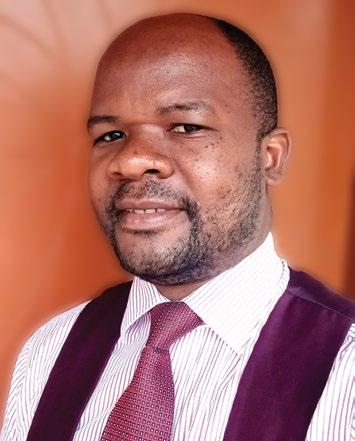
Artificial Intelligence (AI) has not only disrupted our conventional way of thinking; it has also emerged as an important aspect of every industry.
Its advent has brought what is termed technophobia or AI phobia. This fear of anything associated with AI and other similar types of machinery is very visible on many dialogue platforms. The fears disseminated by some on these podia, which include social media, have been feeding the minds of many with negative narratives.
All information is supplied without liability. Although the publisher has taken all precautions to ensure that the information is correct at the time of publication, the publisher and their agents do not accept any liability, direct or indirect, for material contained in this publication.
No part of this publication may be reproduced in any form or by any means without prior written permission of the copyright owners.
These fears mainly involve job loss, privacy, surveillance, and many more. As valid as these threats are, it is also important to realise that AI can be harnessed for good. As it evolves, its crossing with various disciplines will be much more visible, and when embraced strategically, it is bound to have desirable outcomes.
With the right framework in place and the establishment of effective interdisciplinary collaborations, AI can be utilised as a complementary tool that augments our capabilities rather than replacing them.
According to Neuroscience News Communications, interdisciplinary dialogue between neuroscientists, AI researchers, ethicists, and policymakers is crucial to navigating the societal impacts of AI and minimising its risks.
Instead of viewing AI as a monster that will annihilate the human race, I believe it’s time we focus on what areas we can utilise to facilitate a boost in our undertakings. These areas include agriculture, banking,
the health sector, education, personal growth, and many more.
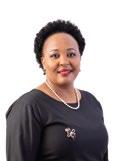
AI aside, we salute you for taking the time to read our August-September issue. We have lined up interesting, factual, and enlightening articles for you. As you go through this issue, ponder over the contents and reflect on the immeasurable opportunities that await you. Focus on the possibilities and act on them with a new perspective. Remember the change that you may have been waiting for all along could have been waiting for you to take that leap of faith and act with conviction.
Enjoy your read and be blessed!
Ephraim Banda
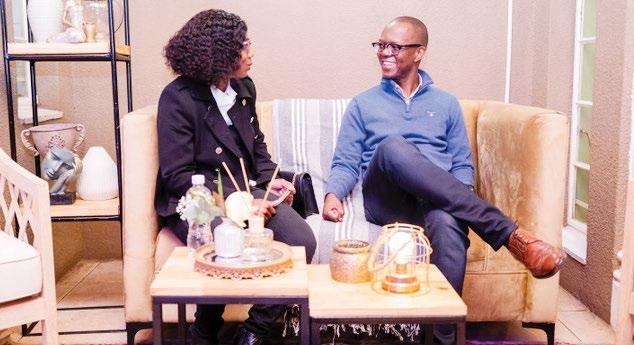
Absa Life's Managing Director, Thebe Modikwa, is a dynamic leader who is solid in the belief that success is attainable. He is adept at inspiring team work, versatile, and equipped with all-embracing experience in the insurance industry as well as unafraid to take calculated risks, Modikwa is a hard worker with the mind-set to find the edge that will make him a trailblazer as he leads one of Botswana’s top-notch insurance companies. Recently, Strides had a chat with him, and below is our conversation.
StrIDeS: Kindly introduce yourself and your professional background prior to joining Absa Life as Managing Director.
MODIkwA: I am Thebe Modikwa,
son of Oageng and Balebi Modikwa. I’m the oldest of three children. I hail from Ratholo, a picturesque village in the Tswapong Hills. I started my professional life as a Mining Engineering Learner Official (Trainee) at Debswana’s Jwaneng Mine. From there, I entered the risk management field, first in engineering risk at what was then Aon Risk Management, then as a broker, a short-term professional, and finally as a life insurance professional with Old Mutual, Metropolitan, and now Absa.
StrIDeS: Do you have a particular incident that inspired you to pursue a career in insurance?
MODIkwA: My interest in insurance started when I was doing engineering risk work with Aon Risk Management.
One of our tasks was assessing and reporting on the risk and corresponding mitigations the operations of the De Beers Family of Companies (FOC) had. European reinsurers would then use our reports to set or adjust the annual insurance premiums the FOC had to pay. During this time, I wrote my first insurance exams, and the rest, as they say, is history.
StrIDeS: How did you develop to fill leadership positions?
MODIkwA: The first rung on the ladder was having the belief that it was possible. My parents instilled this in me at a very young age, not only because I was the eldest child. They explicitly set the expectation that I could and should lead outside our home. Therefore, I always expected a lot from myself
and was conscious of my development. I’ve also been fortunate to have been in structures and around people who contributed to my growth and gave me fantastic opportunities. As a Learner Official at Debswana, where there was a meritocracy, it was made explicit that leadership skills were what were going to advance one’s career. This was necessary because no matter how smart one was, and everyone was brilliant, one could not get anything significant done without the help of others. As a fresh engineering graduate, my peers and I had to supervise men and women who, in some cases, were old enough to be our parents. Due to the high-performance pressures, one had to learn very quickly how to lead and collaborate with different people in the broadest sense of the word. This was facilitated by deliberate, formal, structured supervisory training and mentorship programs. I’ve found since leaving the mine that supervisory development is not common; people are expected to know how to lead based on their tenure. Post-mining, I believe the die had been cast, and I had the mindset that would lead me to always work hard, take calculated risks, and look for the edge that would differentiate me as a leader.
StrIDeS: Having held top management or leadership positions in several organisations and businesses, what is your opinion on developing an organisational culture that will be necessary to assemble a motivated team, develop a strong brand, and successfully achieve an organisation’s vision and mission?
MODIkwA: My experiences have made it clear that sustained success starts and ends with great colleagues. The right culture can only come from having the right people. So firstly, I’d say one needs to surround oneself with the right people. In my experience, the right people are not necessarily the most experienced. They make up for this lack of experience by having what Stanford Professor Carol Dweck calls a growth mind-set. The most treasured employee, then, is the experienced professional with a keen growth mind-set. The right employee is also passionate about doing things with
excellence, or, as we say in Setswana, “ka bonokopila”. Finally, the right leaders are people one would be happy to report to because, aside from their good work, they are good people. I’ve found that if one has the right people in the right seats, as a leader, one does not have to have all the answers on how to achieve success; it can be figured out together. Effective leaders lead by personal example and by setting the standard to which the organisation must operate. The right colleagues will also hire other excellent employees, and this higher talent density should allow an organisation to sustainably outcompete its peers and achieve its organisational goals. Developing a culture that attracts and motivates employees, therefore, starts with good recruitment and the setting and living of high standards.
StrIDeS: In a nutshell, introduce us to Absa Life Botswana, the concept of long-term insurance, Bancassurance, Absa Life Botswana’s main products and services, and what gives your products and services a competitive advantage over other providers.
MODIkwA: Absa Life is Botswana’s 4th-largest life insurer. We have been in the market since 2011. Our focus for most of the time we’ve been in operation has been Bancassurance, that is, insurance distributed through a bank, often bundled with complementary banking products. Long-term insurance refers to life insurance and other insurance products with long contracts (more than a year) that often terminate only on the death of the principal life insured. There are many benefits to taking out life insurance. These include providing financial security for dependents, covering funeral and burial expenses, paying off debts, income replacement, inheritance, business planning, and loan collateral, to name a few. Absa Life offers these solutions to both retail and group or corporate clients. Under retail, we have funeral (Kgomotso Funeral), term life (Botshelo Term Life Cover), whole life (Botshelo Whole of Life), and investment savings (Peo Investment Plan). Our retail products sold exclusively
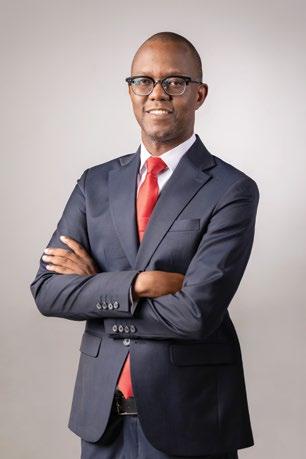
My experiences have made it clear that sustained success starts and ends with great colleagues. The right culture can only come from having the right people.
through Absa Bank Botswana under their agency include Botshelo Personal Loan Protection, Botshelo Mortgage Loan Protection, and Botshelo Vehicle and Asset Finance Loan Protection. For groups, schemes, and corporations, we have the full suite of group life and disability covers.
Our special distribution relationship with Absa Bank differentiated us from most other life insurers for a long time. I’m extremely fortunate that I joined the organisation after my Board, employees, and the immediate past leadership made decisions to invest heavily in technological enablement. Over the past few months, Absa Life Botswana has added online sales and servicing capabilities for retail customers. By the end of the year, this will have been extended to groups, schemes, and corporate clients. If any of our customers visit our website at www. absalife.co.bw right now, they can buy a funeral or life insurance policy. No other insurer in Botswana, short-term or long-term, has this capability. We are incredibly proud of the work of our employees in getting us this far, and we intend to build on it.
StrIDeS: What are the most common myths about long-term insurance, particularly in Botswana, and could you please dispel them?
MODIkwA: The most common myth or misconception about life insurance is common to all insurance products. This is the idea that one has not enjoyed insurance benefits if one does not claim.
I cannot argue with you on this point if you do not value financial certainty. But if you value the peace of mind that comes with being more certain about your future financial state or having your loved ones look at you with pride because they know that you are making a responsible small sacrifice each month to ensure their welfare, then I think I can convince you that you are enjoying the benefits of insurance even though you have not put in a claim. I believe this message of familial responsibility needs
to permeate our national conversations more because it talks about creating intergenerational wealth, something that allows our children to be bolder than we ever could be when it comes to not only taking more entrepreneurial risks but being able to sustain those risks for longer so that more of them result in successful ventures.
StrIDeS: As Absa Life Botswana, how do you stay ahead of industry changes and disruptions, and what strategies do you use to keep the company agile and competitive?
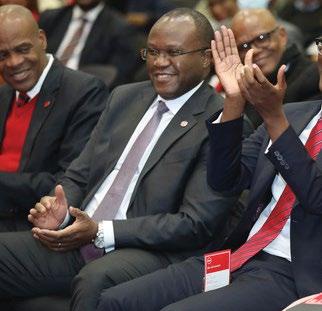
MODIkwA: Fortunately, industry changes at a regulatory level are well managed by our regulator, NBFIRA. For example, we are always consulted on new legislation and given a fair opportunity to influence any proposed changes. In fact, NBFIRA has often gone a step further and asked us, through our industry body, the Association of Life Underwriters (ALUB), to proactively
recommend to them what we’d like to see.
The barriers to entry for the life insurance industry are reasonably high, but given the stable double-digit profitability of the industry, one can expect new disruptive entrants. I must commend Absa’s Board and past leadership for being visionary and investing in digital distribution. No doubt this was spurred on by the COVID-19 global pandemic, which halted faceto-face sales for some time. One of my challenges is ensuring that we quickly consolidate our leading position in this area. Looking ahead, however, we must keep investing in people and creating an environment where new ideas are encouraged, cultivated, and quickly tested.
StrIDeS: Can you talk about insurance penetration in Botswana and what steps you’re taking to increase awareness, inclusivity, and affordability?
MODIkwA: Botswana’s insurance penetration currently stands at 2.6%, versus a global average of 7.4%. Our neighbours in Namibia are at 5.1%, and South Africa is at 12%. Clearly, as an industry, our work is cut out for us. Given Botswana’s economic standing (a critical factor for penetration) relative to other countries with higher insurance penetration, I’m hopeful we can at least double our insurance penetration.
The quickest and most decisive way to increase the insurance penetration rate is through more enabling legislation and, in some cases, compulsory insurance. On the short-term insurance side, there is already compulsory workers’ compensation, but in my view, there is a need for compulsory third-party motor insurance issued by private insurers. There are approximately 600,000 registered road vehicles. If each of these had to pay, say, P100 a year in compulsory third-party insurance, not only would there be significant financial protection
for the public and public property, but the penetration rate would also increase marginally.
On the life side, I’d advocate for the amendment of our laws so that one can have a monthly pay-as-you-go funeral cover, for example. In this way, casual and seasonal workers could afford cover. Introducing this and other types of microinsurance, distributed via mobile and mobile money platforms, would start a fresh new conversation in the country as insurers spend on education and marketing to go after the current underserved informal market, primarily comprised of women and youth. This last point on the power of distribution is essential. The ease, cost, and experience of buying insurance products are critical for increasing insurance penetration and inclusivity.
The above should not be construed to suggest that it is mostly legislation that can increase insurance penetration. As insurers, we need to do a better job
of applying our considerable resources to product and distribution innovation aimed at reaching underserved markets.
StrIDeS: Where do you see Absa Life Botswana in your time as Managing Director?
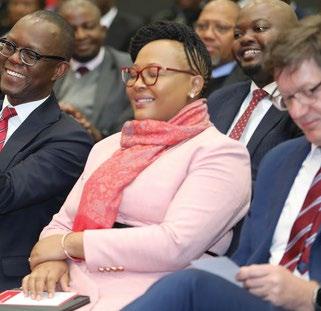
MODIkwA: At the end of my tenure at Absa Life, I’d like to see it among the top three life insurance companies. To do this, we have to double in size, something we cannot do unless we and our products and services become better known. Having this interview with you brings us closer to this goal.
StrIDeS: What, in your opinion, is the key to leadership success in the insurance industry?
MODIkwA: Whether at a company or industry level, it is one’s ability to work with others.
StrIDeS: Finally, how do you stay motivated when confronted with difficult situations or decisions?
MODIkwA: I find difficult decisions harder than difficult situations, though the two are not mutually exclusive. For difficult situations that affect me, whether work-related or personal, I contextualise what I’m seeing or experiencing. Every time I do this, it’s clear that I am fortunate and privileged and that the current issue, while important, is not fatal. There has only been one time in my life when I had to stop and acknowledge that I could not trivialise the challenge. Here I wrote down all the good I had done in the past and all the things I had achieved. After that, I was back to my grateful, happy self.
Regarding difficult decisions, I always try to get as many viewpoints as possible in the shortest time possible. I’m happy to decide if I have 80% of the information and some perspectives from my trusted employees. Even if, in the end, it’s not the most optimal decision, I’m happy that we have acted. One must, however, always ask, “What is the worst that can happen?” If the answer is that my decision puts the whole company at risk, then my approach is necessarily more thorough. Thankfully, such decisions are few and far between.
Officially opened in November 2022, the Orange Botswana Digital Center (ODC) has made significant progress towards fulfilling its promise of providing Batswana with cutting-edge digital and entrepreneurial skills. As it strives to raise greater digital inclusion in the country, the ODC, which falls under the Orange Foundation, recently graduated 150 students equipped with world-class hands-on skills that place them on a pedestal for achievement in their respective industries.
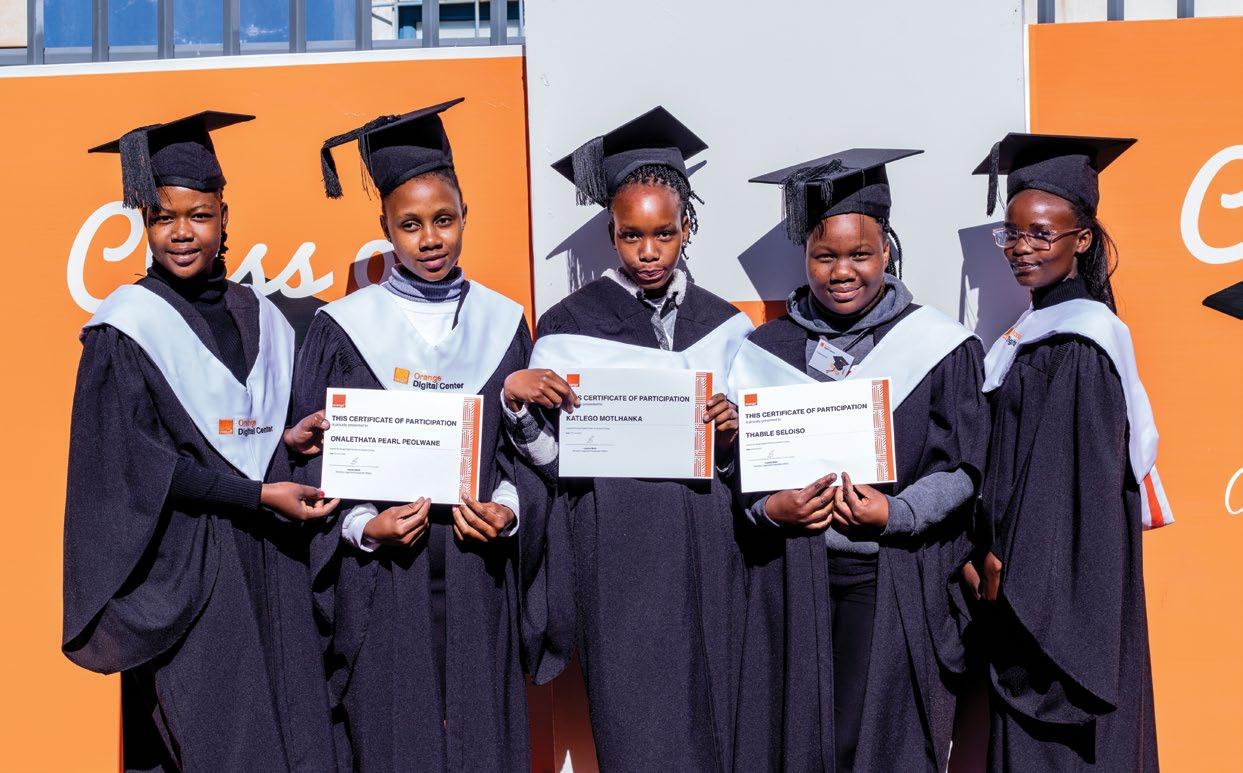
The graduates have received training that will enable them to maximise their
potential by leveraging technology and innovation, in line with Orange Botswana’s drive to promote the nation’s socio-economic progress.
In his speech, the Mayor of Gaborone City, His Worship Austin Abraham acknowledged the visionary leadership of Orange Botswana for its committed efforts to foster digital innovation and technological advancement. He said this empowers the youth and promotes digital transformation in Botswana.
Abraham said it was worthwhile to celebrate the graduates of the ODC as the skills they obtained are essential for them to thrive in an ever-evolving
digital age.
“We live in an era where technology has become an integral part of our daily lives. The digital revolution has transformed the way we communicate, learn, work, and even entertain ourselves. It has opened up unprecedented opportunities for economic growth, social development, and innovation. However, it has also created new challenges and disparities that we must address.”
“The Orange Digital Center, with its comprehensive programmes and stateof-the-art facilities, has played a pivotal role in bridging the digital divide and equipping our youth with the necessary
tools to succeed in the digital world. As we witness the graduation of these exceptional individuals, we must acknowledge the immense potential they hold. They are not just graduates; they are the architects of our digital future. They have the skills, knowledge, and passion to drive innovation, create disruptive technologies, and solve the complex challenges facing our community and society," said Abraham.
On her part, the Director of Legal Affairs and Corporate Affairs at Orange Botswana, Lepata Mafa-Nthomola, said the ODC was Orange’s
response to breach the chasm exposed by the digital revolution.
“As Orange Botswana, we recognise this as a call to action. A call to empower, educate, and equip our fellow Batswana with the digital tools and skills necessary for success in the evolving digital environment. Orange Botswana, in partnership with our regional affiliates in the Middle East and Africa, launched the Digital Center, a flagship initiative aimed at fostering innovation, nurturing talent, and empowering individuals to thrive in the digital era. This center, which is
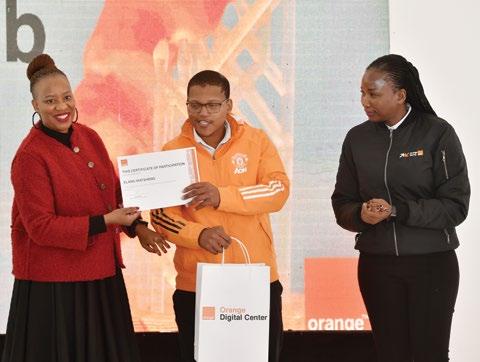
the 12th of its kind to be launched in Africa, serves as a catalyst for change, a place where technology dreams and ambitions are nurtured and possibilities are brought to life,” elucidated Mafa-Nthomola.
Mafa-Nthomola indicated that through the ODC, Orange Botswana is creating an ecosystem of innovation that embraces collaboration, Knowledge-sharing, curiosity, and capacity-building.
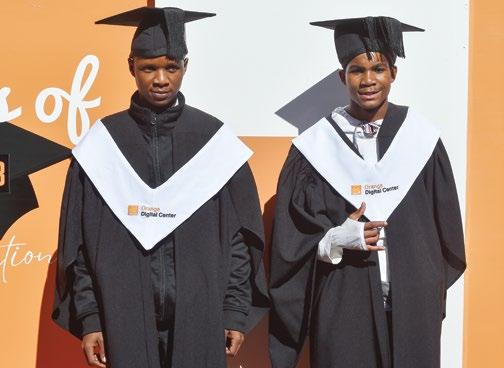
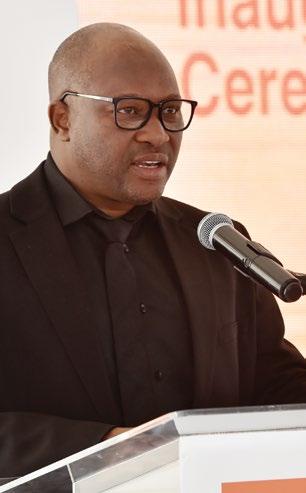
“Technology has become an indispensable force driving socio-economic progress. It has the potential to trans-
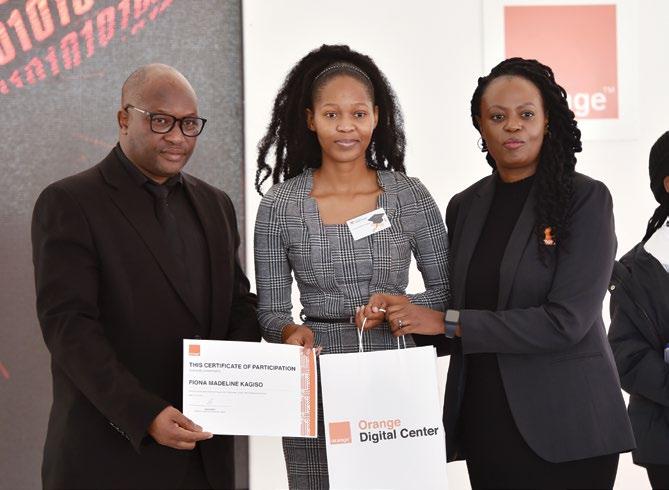 Orange Botswana Director of Strategy Performance & Transformation, Kelebogile Mfolwe and Director of Human Resources, Modiri Nlanda awarding ODC graduates
His Worship Austin Abraham, Mayor of Gaborone
His Worship Austin Abraham, Mayor of Gaborone and Orange Botswana Director of Orange Digital Center (ODC) Mafa-Nthomola awarding ODC graduates
Orange Botswana Director of Strategy Performance & Transformation, Kelebogile Mfolwe and Director of Human Resources, Modiri Nlanda awarding ODC graduates
His Worship Austin Abraham, Mayor of Gaborone
His Worship Austin Abraham, Mayor of Gaborone and Orange Botswana Director of Orange Digital Center (ODC) Mafa-Nthomola awarding ODC graduates
form industries, empower individuals, and propel nations forward. Recognising this immense potential, the Orange Botswana Foundation has positioned itself as a champion for technology, spearheading initiatives that pave the way for the digital future in Botswana,” concluded Mafa-Nthomola.
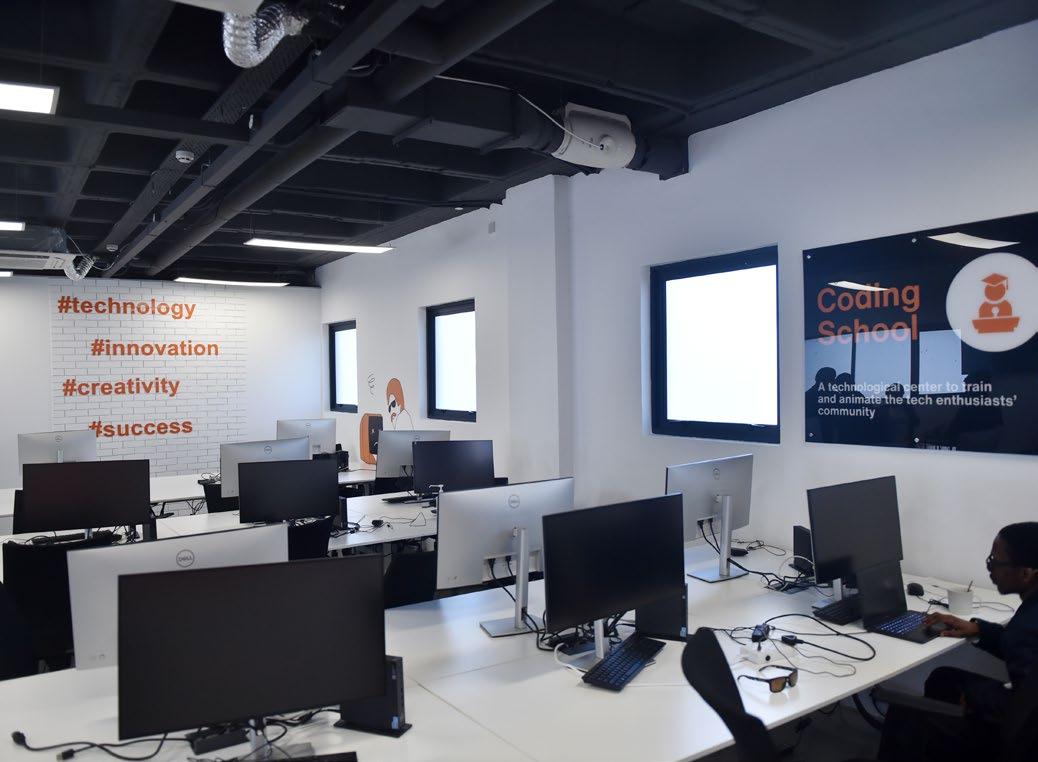
The 150 graduates received tutelage in a coding school specialising in training upcoming coders and digital embroidery under Orange Fab, an accelerator for start-ups supporting the growth of digital businesses and exposing them to national and international partnerships, as well as Orange Ventures, an investment to help finance sustainable start-ups.
The ODC digital production workshop equips the students with skills for creating and prototyping with digital equipment, such as 3D printers, milling machines, and laser cutters.
Officially opened by His Honour Vice President of Botswana, Slumber Tsogwane, The ODC’s facilities are free and available to everyone and support learning based on actual projects. There are digital technology training programmes accessible to students, job seekers, and young people with or without credentials. The work of the ODC is evidence of Orange Botswana’s constant dedication to reducing access to digital technology as a form of social exclusion.
Mafa- NthomolaThe ODC has also facilitated Girls in ICT training in Ramotswa and Otse, coding training for partner NGO stakeholders, and hosted a Future of Work Africa Week early this year that deliberated on the impact of the 4th industrial revolution on the labour market.
Technology has become an indispensable force driving socio-economic progress. It has the potential to transform industries, empower individuals, and propel nations forward.
Director of Orange Digital Center

Tabuya Tau, the new Managing Director of Hollard Life Botswana, was recently introduced during a Partners breakfast in Gaborone. The event was notable for the brand’s involvement of innovative local youth artists and entrepreneurs in its effort to enable Better Futures.
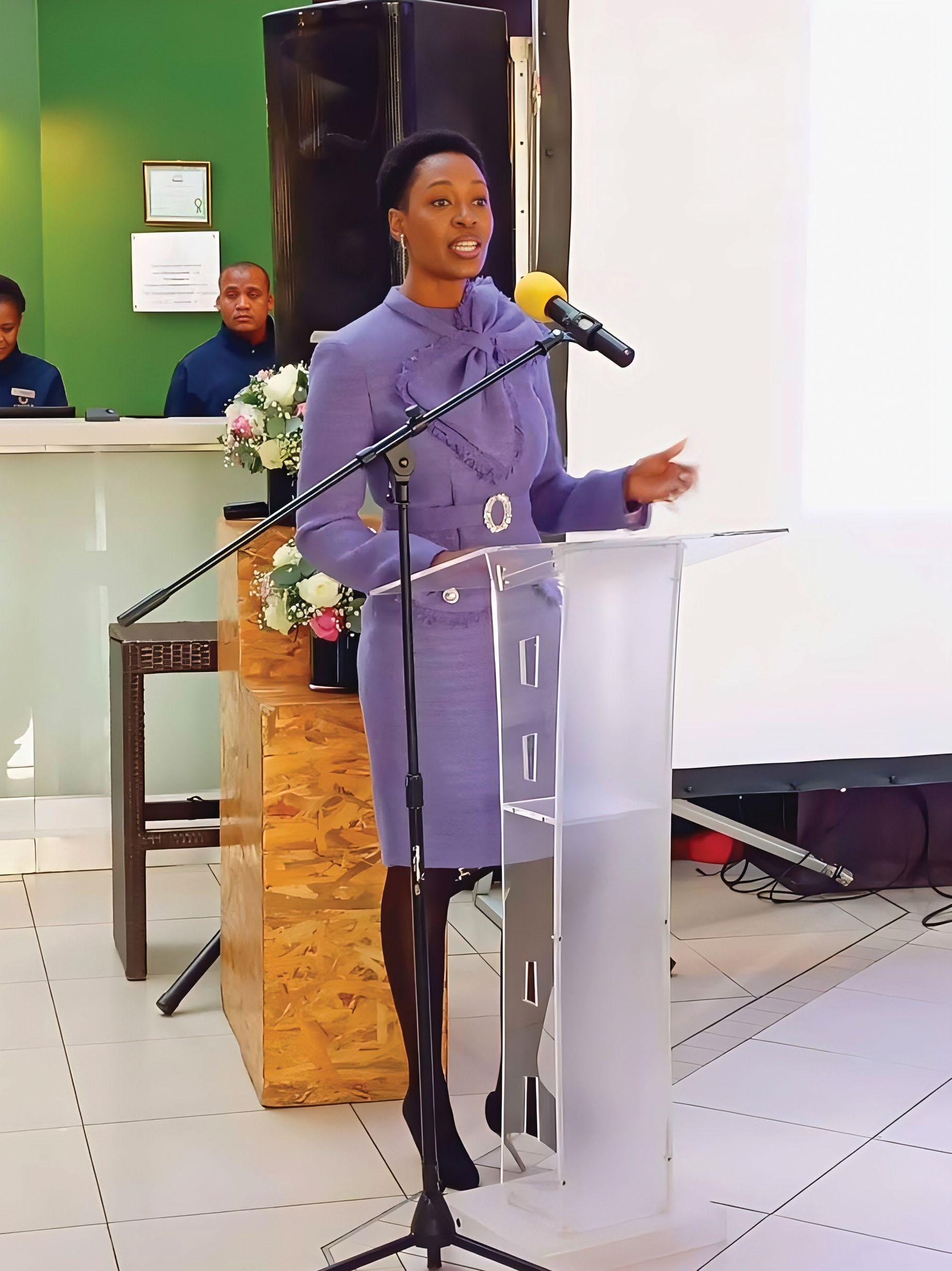
With a great track record of empowering youth initiatives including Project124 Africa, Hollard’s engagement of the four youthful entrepreneurs and artists at its inaugural Partners Business Breakfast is a testament to its leadership’s dedication to continue positively impacting lives in the country.
Drawn from various backgrounds, the artists and entrepreneurs engaged at the breakfast have one thing in common: they are inspired to change their lives through their businesses and talents.
Tshepho Tshosa’s passion started as a hobby. Intrigued from a tender age to capture moments and later share them with his mother and siblings, his hobby has, over time, turned into a craft he has fallen in love with.
Based in Gaborone, his passion for photography has taken him to different places across the country, bringing smiles to people through his work.
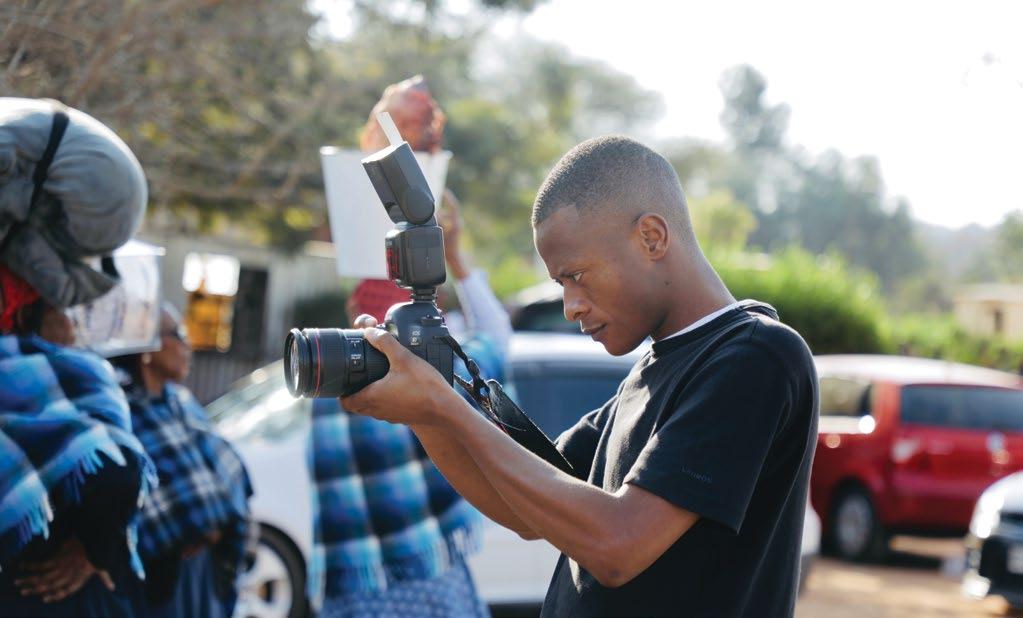
“My work has taken me all over the country, covering events and exploring all I can about my country and its people. My services range from photography to graphic work and brand enhancement. Although there’s still a long way to go, I’m excited for the experiences ahead,” says Tshosa, adding, “Covering Hollard’s events exposes
me to great opportunities and is a platform for memorable experiences. During such events, I have grasped the opportunity to grow in my craft as well as my business. I have learned engagement and professional execution, which are skills I need to work effectively and provide excellent service to the rest of my clients.”
Enthusiastic about the future, Tshosa believes that he will own a fully equipped studio and use it as a platform to broaden his craft and provide services that upgrade and enhance his client’s businesses.
Eventually, this studio will also serve as a hub of growth for other people who are interested in the craft. I believe we are helped to help others in need,” says Tshosa.
Seabe J. Motlogêlwa is the entrepreneur behind Perfekt Roast Kofi, a consumable coffee solutions company established in 2019. Domiciled in Gaborone Main Mall, the business operates as a specialty takeaway coffee kiosk and also provides mobile coffee solutions.
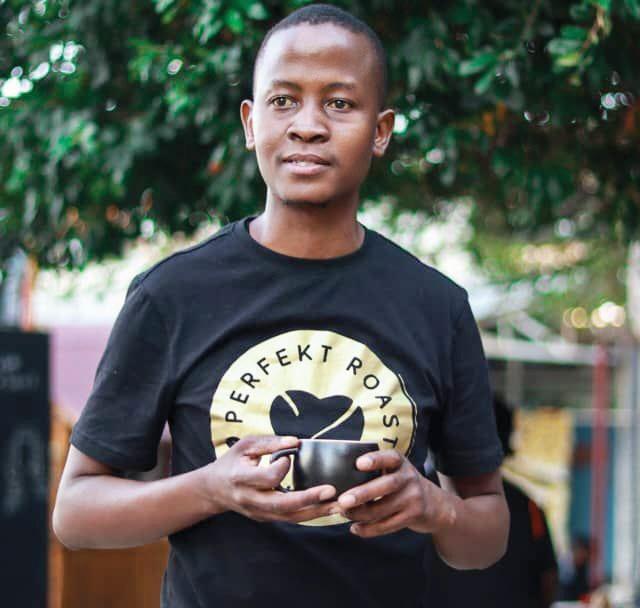
“We do corporate events, private events, and specialised coffee solutions.
In a bid to promote native products, we have taken the bold decision to include native tea plants as part of our menu offerings. These include Motlopi Kofi, Mosukujane herbal tea, and Lengana herbal tea,” says Motlogêlwa.
As he strives to establish his brand, Motlogêlwa is upbeat that corporate engagements such as the Hollard Life inaugural business breakfast are a welcome development.
“At the event, we offered our portfolio of prestige coffee catering. It was a testament to the trust that our clients have placed in us over the years. This is enough evidence to suggest we are a company of choice to deliver this service, and we look forward to more engagements for more growth as a youth-led business,” says Motlogêlwa.
Motlogêlwa says as his business is developing and finding sure footings, he
is mindful of the importance of establishing win-win working relationships and cultivating a growth mindset.
“We aim to open more kiosks shortly; hopefully by the last quarter
of this year, we will have opened our second convenience coffee kiosk to cater to a wider customer base. We are confident this will materialise as we have made enough investments over time,” explains Motlogêlwa.
Skit Kabomo is a contemporary folk musician who hails from Kanye and plies his trade in all corners of the world from his base in Gaborone. A multi-traditional instrument player who specialises in Setinkane, Kabomo is adept with meropa, marimba, segaba, and nkokwana.
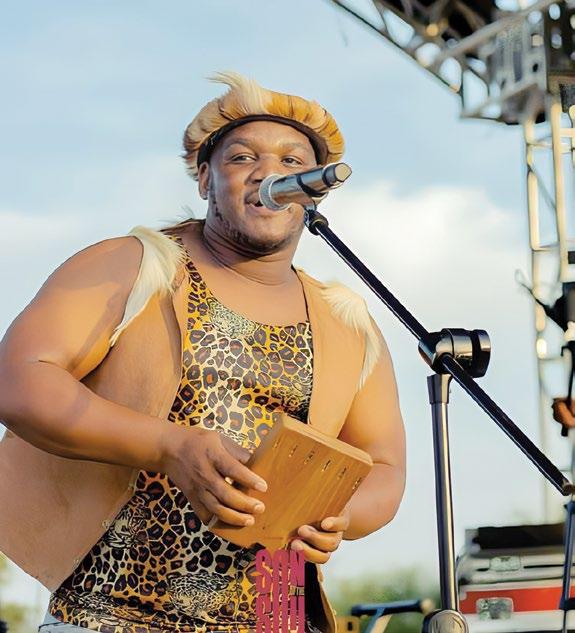
“I started playing Setinkane in 1997 and got comfortable with it in 2003. I have received seven Setinkane awards,” says Kabomo, adding that I play any event but mostly cooperate. I have played abroad in countries like South Africa, Kenya, Ivory Coast, the UK, the USA, Sweden, Canada, Germany, Denmark, and Switzerland.”
As an artist, Kabomo believes in getting business audiences and is always grateful when opportunities arise, as it helps him take a positive step towards achieving his goal as an artist.
“The Hollard reception was on point, well organised, and the team had top-notch hospitality,” says Kabomo.
Young and an epitome of great musicianship, her stage name is Sebaga.”
With hard work and talent, she has been making herself a name and making a mark in the industry through her skill of playing the saxophone. She has mastered the art of displaying her true jazz ‘soul. Despite her first discipline of music being Jazz, she has honed her skills and blends her saxophone with various artists across genres, including jamming to live House DJ performances.

Sebaga is the co-founder of Jam-n-Soul Live sessions that showcase poetry and singing, where she directs the music and sound textures. She offers her services for corporate functions of different scales.
To boost her talent the knowledge, she studied with Trinity College through Kingdom Arts Academy and was selected as part of the American Music Abroad virtual tutorials. A teacher’s aide at Kingdom Arts Academy, Sebaga also volunteers at The Bosje Big Bands in Botswana, sponsored by the U.S. Embassy. Her debut album, Fola Pelo, depicts her journey of emotions in song.
Grateful and honoured to have been part of the Hollard Partner Breakfast, she looks forward to similar experiences in the future. Her dream is to tour the world and empower other women to join the music industry and other business ventures.
On August 23, 2023, the Bank of Botswana (BoB) marked the official opening of its redeveloped Headquarters building as well as its 47th Pula Day. The Bank of Botswana’s remodeled headquarters is a comprehensive project influenced by strategic and operational components. The project, codenamed “Pula le Thebe,” was completed for P850 million.
The President, His Excellency Dr. Eric Keabetswe Masisi, officially opened the milestone project that has maintained its campus-like configuration. The multiple buildings have been extensively modernised and equipped with stateof-the-art service installations, smart technologies, an advanced building management system and a Tier 3 data centre aimed at facilitating the operational efficiency of the bank.
The President said the redeveloped building is designed to be both structurally sound and adaptable to last for the next 50 years and is flexible to accommodate subsequent organisational change and technological innovations.
“I recognise that a central bank building should, as a key national institution, be symbolic and iconic, as a projection of what it stands for; an edifice that portrays character and stature, while signifying solidity, stability and transparency, as well as being culturally and time relevant,” said Masisi.
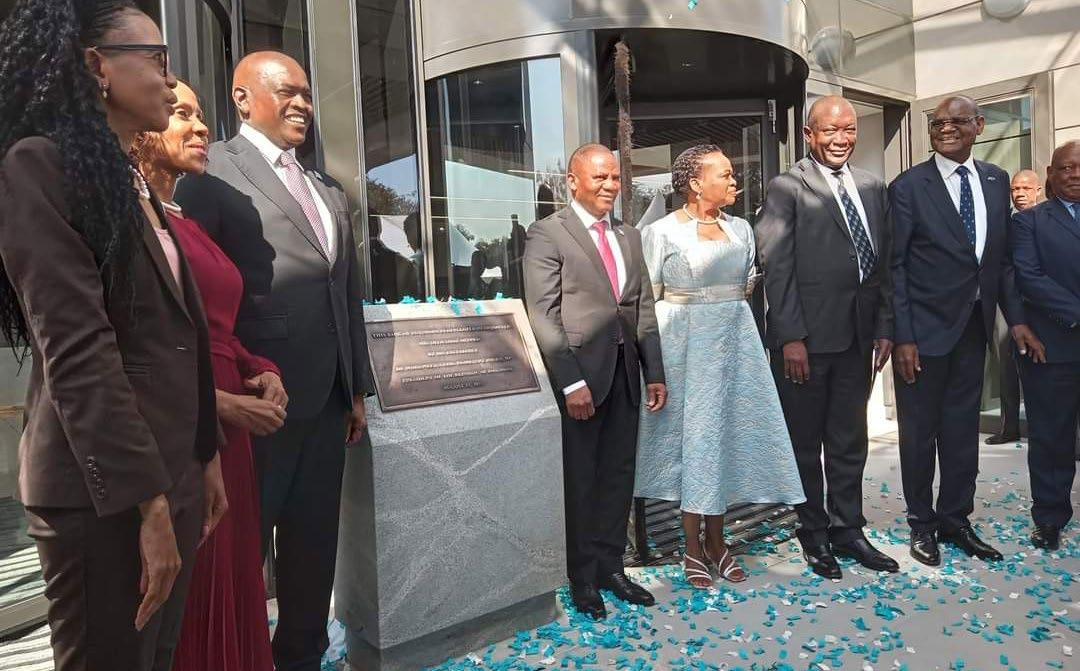
The President noted that to reflect transparency, openness and accountability, the building has several spaces and amenities for interaction with the public, including conferencing facilities and meeting rooms, a museum and knowledge centre.
A futuristic structure, the BoB building is the epitome of green energy. Its design is in sync with climate change challenges, transition and adaptation requirements, as well as related national development imperatives; the building is planned to be environmentally friendly.
Bank of Botswana Governor, Moses D Pelaelo said the planning and programming of the project were for the Bank to lead by example in implementing best practices in respect of sustainable building, including water-saving mechanisms, waste management, energy- efficiency and, ultimately, climate change mitigation, in a process driven by targeting the top Green Building Rating.
“As part of the sustainability drive, 70 percent of the existing building area of the headquarters was retained and repurposed for new use. A new building
envelope provides new aesthetic articulation, a more consistent image and is a key element of energy-efficiency,” said Pelaelo, adding, “On the environmental front, the new facility will have extensive solar photo-voltaic panels on all major roofs and part of the parkade, reducing reliance on BPC power and possibly offload to the national grid during weekends, when there is low internal demand. Through the combination of energy-saving technologies, passive climate control via the building envelope and photovoltaic power generation, the core building will achieve carbon Net-Zero status.”
The Governor said that based on the design, concept and environmental aspects, the project achieved the targeted 6-star Green Building design rating, which places the building in the ‘world leadership’ category, resulting in two awards at the Green Building Council of South Africa’s annual awards ceremony in November 2022: the “Highest Rated Building Award” and the “African Award”.
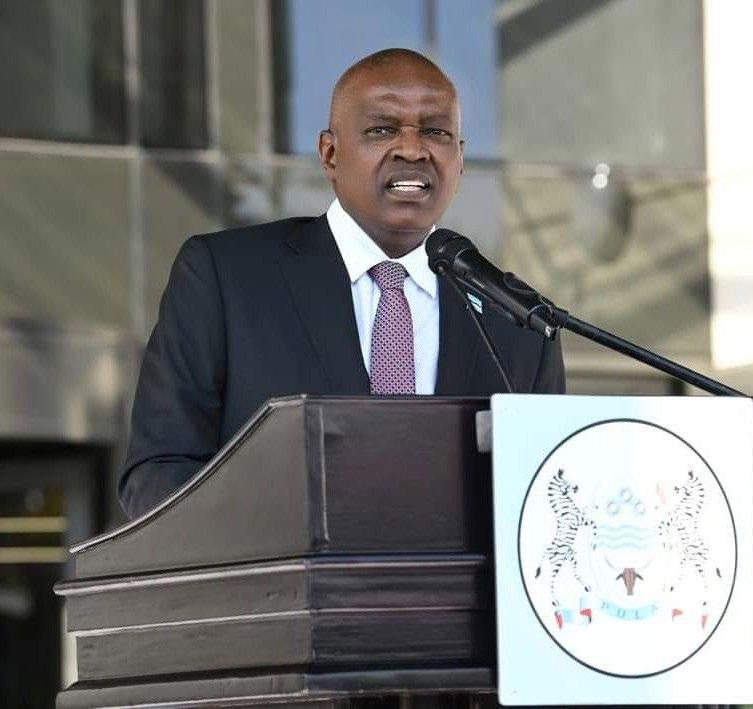
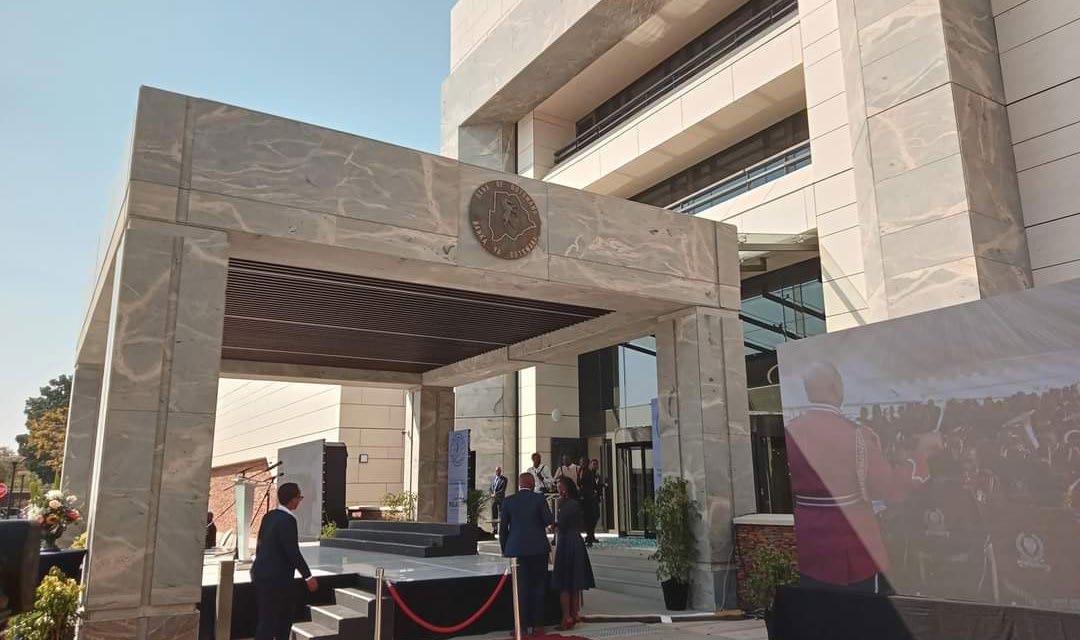
“The Headquarters Redevelopment Project, represents the single largest capital project ever undertaken by the Bank.
We hope, therefore, that the redevelopment will address the evolutionary growth of the Bank and facilitate the performance of the Bank’s mandate,
and that the building will remain in pristine condition and functionality for the next 50 years,” said the Governor.
The Botswana Development Corporation (BDC) and Botswana Institute for Technology and Innovation (BITRI)’s recent signing of a Memorandum of Understanding (MOU) is a harbinger of great tidings for the nation’s technological landscape and platform for spurring positive economic growth.
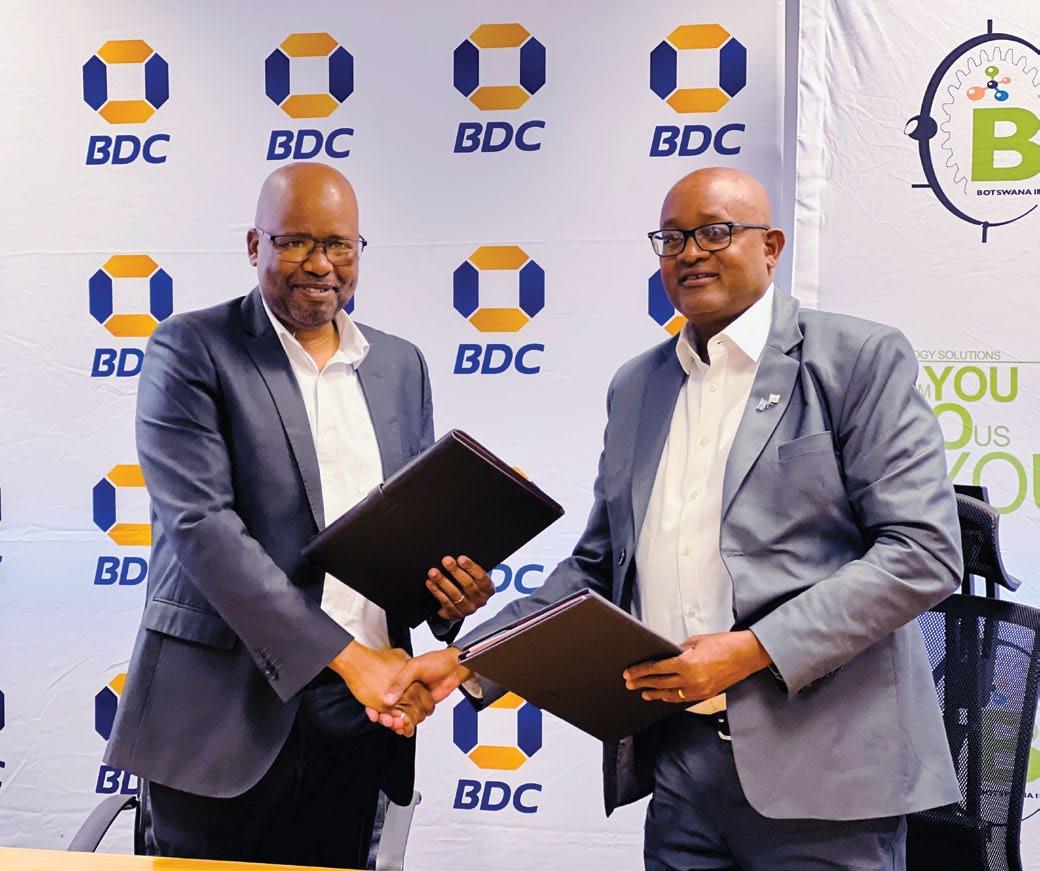
According to the duo, the MoU seeks to pave the way for a progressive future in technology and innovation and drive an economic system in which knowledge, information, and intellectual assets are the primary drivers of growth and development.
The MoU lays the foundation for the collaboration and consideration of
funding the commercialization aspects of BITRI’s Research and Development output, collaboration on proposal ideation, screening, and approval of potential licensees and assignees of BITRI technologies, providing a crucial pathway for funding and empowering entrepreneurs and businesses to leverage these technologies for the greater
benefit of the country.
In his remarks, the BDC Managing Director, Cross Kgosidiile, said the MoU signifies the dawn of a new era characterised by collaboration, ingenuity, and a shared commitment to driving technological advancement and fostering innovation.
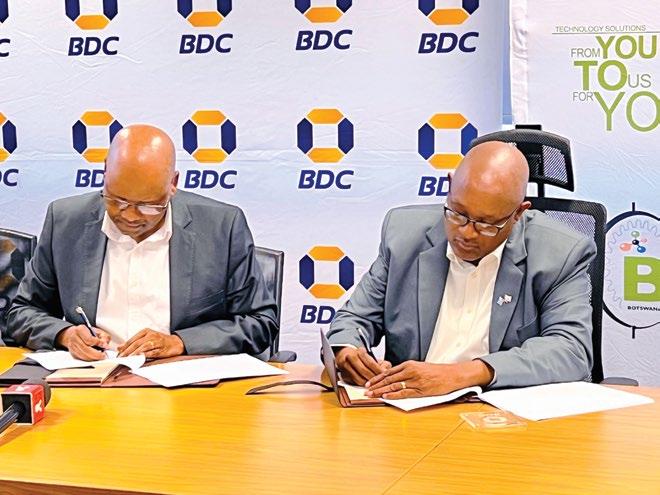
Kgosidiile noted that the initiative is in sync with the United Nations Sustainable Development Goals (UNSDGs), specifically Goal 9: Industry, Innovation, and Infrastructure, as well as Goal 17: Partnerships for the Goals.
“Investing in cutting-edge technologies and nurturing a culture of innovation positions Botswana as an attractive destination for global investors seeking opportunities in a dynamic and forward-looking environment, which aligns with our Vision 2036 national aspirations to attain a high-income status and diversify our economy,” said Kgosidiile.
BDC, which is the Government of Botswana’s focal investment arm, will provide funding, training, mentoring, and imparting entrepreneurial skills and competencies to BITRI, its affiliates, and subsidiaries to transform them into sustainable enterprises that contribute meaningfully towards Botswana’s economic growth and development.

The partnership is expected to foster an ecosystem that encourages creativity, research, and development, ultimately leading to the successful commercialization of novel technologies. Furthermore, the innovations will not only benefit BDC and BITRI but also create a ripple effect throughout the country, spurring job creation, attracting foreign investment, and enhancing Botswana’s global standing as a nation at the forefront of technological progress.
In his remarks, BITRI Chief Executive Officer Shedden Masupe expressed his gratitude for the move BDC took to partner with the Institution to create an environment where ground-breaking ideas and research can flourish and grow into tangible and commercial ventures. He further noted that it is through such partnerships that silos in the innovation ecosystem can be broken.
Technology has become an indispensable force driving socio-economic progress. It has the potential to transform industries, empower individuals, and propel nations forward.
Cross Kgosidiile BDC Managing Director
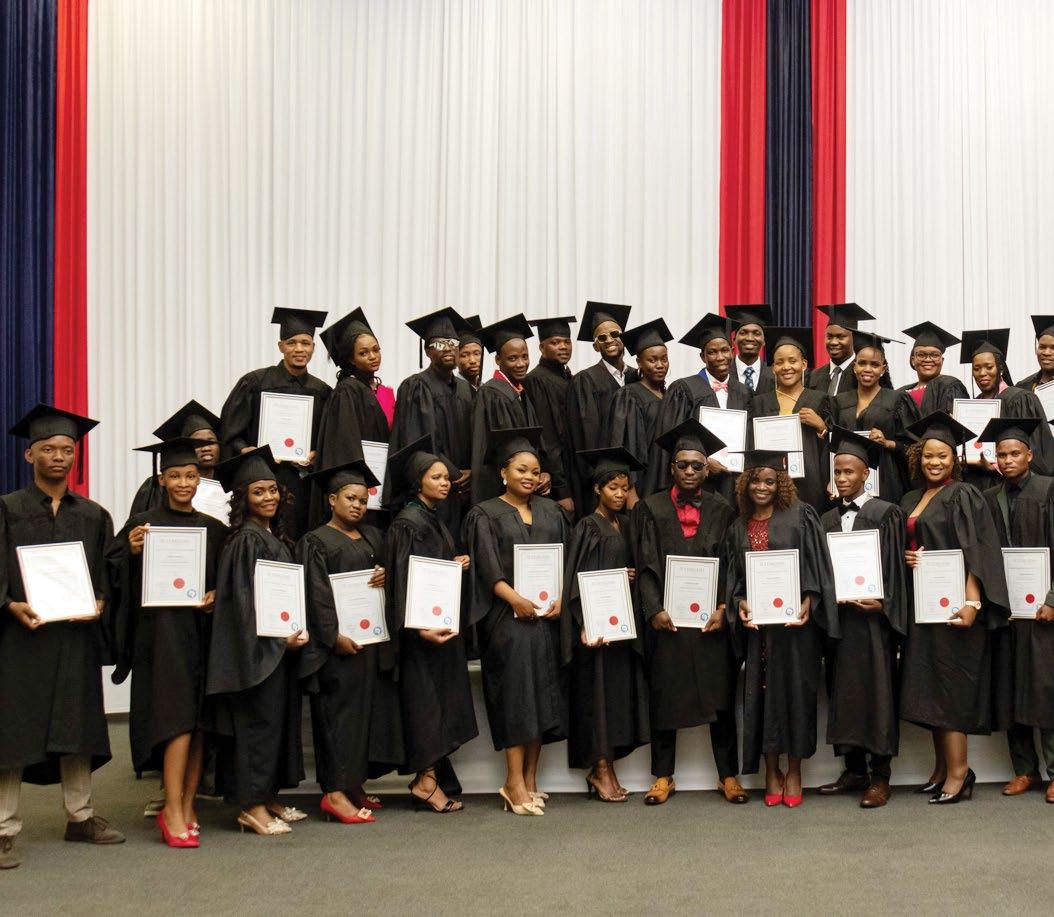
The Stargems Diamond Training Center held a momentous graduation ceremony, marking the successful completion of specialised training in diamond manufacturing and evaluation for 70 Batswana students. The internationally acclaimed diamond manufacturing company, Stargems Group, established the training centre as part of its Corporate Social Responsibility (CSR) commitment to empower the community in which they operate.
Speaking at the ceremony, Vishal Shah, the Stargems Group Managing Director, highlighted the significance of the initiative in supporting the National Human Resource Development Strategy (NHRDS) and addressing the issue of youth unemployment in Botswana. He emphasized that business can only thrive when the community is well taken care of, and Stargems Group is determined to make a positive impact on various communities and economies.
The Stargems Diamond Training Institute, situated at the Stargems Group Botswana Unit in Gaborone, offered graduates comprehensive modules in both theory and practice of diamond processing, from rough diamond evaluation to diamond grading and polishing. The eight-week program also provided students with an internationally recognised certificate in partnership with the prestigious Harry Oppenheimer Diamond Training School, opening doors of opportunity in the diamond industry worldwide.
“The success of this initiative lies in the collaboration between Stargems Group, the government, and relevant authorities. By working together, we can effectively curb youth unemployment and create a brighter future for our nation,” stated Shah during the ceremony.
In a remarkable demonstration of commitment to building and equipping the Botswana workforce, Stargems Group announced that several outstanding graduates would be offered employment within the Stargems Group company. Currently employing 117 Batswana, the company aims to increase this number to 500 with the help of these highly skilled and motivated graduates from the Stargems Diamond Training Center.
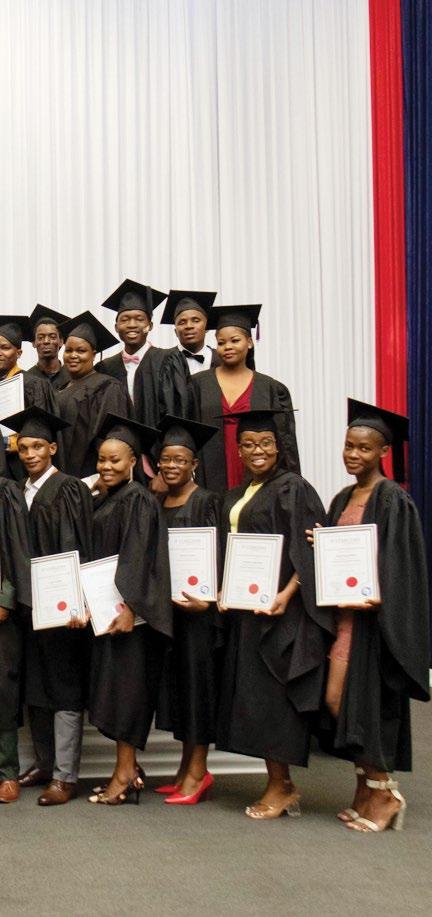
During its inception stages, the Minister of Minerals and Energy, Lefoko Moagi, expressed his full endorsement and support for the Stargems Diamond Training Center. He praised the initiative as a significant step towards empowering the youth and boosting the nation’s economy. The partnership between the government and Stargems Group holds the potential to drive transformative change in the diamond industry and beyond.
The graduation ceremony witnessed a jubilant atmosphere as proud graduates celebrated their accomplishments and prospects. Addressing the students, Vishal Shah encouraged them to carry forward the knowledge and values gained during their training and to be the torchbearers of positive change in the diamond industry.
The success of the Stargems Diamond Training Center serves as a shining example of the transformative power of education and community empowerment. With its commitment to nurturing local talent and contributing to the development of Botswana, Stargems Group continues to pave the way for a brighter and more prosperous future for all.

Diamonds are the key driver of the economy in Botswana and it is expected that active citizen participation should be the leading factor in diamond beneficiation.
To address the loopholes and close some gaps in the diamond beneficiation programme in Botswana, De Beers Group aims to establish a hitech operation in Botswana which will include a De Beers Institute of Diamonds grading lab and inscription facility in Gaborone.
The establishment will also include an IT support hub for midstream technology and exploration processing and a micro-diamond lab. Dubbed, ‘Diamonds for Development Fund,’ the facility will support the country’s emerging knowledge-based economy and accelerate its long-term economic diversification drive.
Chief Financial Officer at De Beers - Global Sightholder Sales, Susanne Swaniker-Tettey said to ensure De Beers can deliver a transformative positive impact in partnership with the people of Botswana, it will make an initial investment of P1 billion and up to P10 billion in total in the fund.
“The Group will support appropriate skills development through the establishment of a Diamond Vocational Training Institute and Diamond Entrepreneurs Programme for greater citizen participation in the industry,” Swaniker-Tettey.
The cutting and polishing industry in Botswana is still in the development phase and needs a dynamic policy environment to remain relevant at all stages of its development. She explained that the fund will adopt globally recognized methodologies to identify sectors beyond the diamond value chain that support the government’s vision 2036, national development plan and delivery of the Reset Agenda.
The new partnership between
Botswana and De Beers will grow the role of Okavango Diamond Company (ODC) in the diamond value chain. At the signing of the Sales Agreement, the share of Debswana production sold through ODC will rise to 30 per cent, then 40 per cent at the end of year five and 50 per cent at the end of year 10.
“This presents an opportunity for joint exploration in highly prospective regions of the world”.
At the signing of the contract, the group will have an immediate investment of P1 billion into a Diamonds for Development Fund to support economic diversification and the knowledge-based economy, with a total investment of up to P10 billion in total.
Swaniker-Tettey said during the first half of 2023, the group increased the number of sightholder factories by eight, growing from 31 at the end of 2022 to 39 by the end of June 2023. “This represents a 25 percent increase.”
The Sightholders were supported through availing economically cuttable goods, mostly 2cts+ gem quality goods to be manufactured locally and their performance was driven and monitored through Rough utilisation, employment creation and skills transfer.
“In the first half of 2023, US$460 million was sold to local factories which employ 4 310 people, 77 percent locals, 62 percent of which are women.”
“
Resilience is the virtue that enables people to move through hardship and become better. No one escapes pain, fear, and suffering. Yet from pain can come wisdom, from fear can come courage, from suffering can come strength—if we have the virtue of resilience,” Eric Greitens.
Everyone has an idea of a perfect life; however, what we experience in our daily walks often prompts us to wonder and, at times, despair as expectations are not met.
We come face-to-face with hard situations on personal and business levels. The myriad of challenges we encounter as a people can at times be outright demoralising, disenchanting, discouraging, and dismantling to our long-held beliefs
as to what life ought to be.
We face rejections, delays, failures of different dimensions, disappointments, and what have you. When we look at those to whom life seems to be smooth, we sometimes question the authority and fairness of God.
Well, much as we desire it, life isn’t and will never be fair, and the secret to facing this unfair life lies in our perspective. We will win or lose based on our interpretation of circumstances. It’s a function of attitude.
Epictetus said, “It is our attitude towards events, not events themselves, that we can control. Nothing is by its own nature calamitous; even death is terrible only if we fear it.”
Yes, although many have already done it, there are many more that need to
develop a resilient attitude towards life’s issues. I am not inviting you to stoicism, but if it can help you face life stoically, a bit of stoicism won’t do you harm.

Be strong and resilient in the face of life’s challenges. Tell yourself, “This also will pass.” Look at the challenges from different angles until you find a way through them and emerge victorious.
It is also important to identify with those who have the spirit of resilience and learn from their strategies. The bible says Iron sharpens iron; therefore, I believe those who have overcome when life challenges have the ability to help you rise above the storms of life.
“When we long for life without difficulties, remind us that oaks grow strong in contrary winds and diamonds are made under pressure.” Peter Marshall

Botswana Power Corporation (BPC) has signed a 30-year Power Purchase Agreement with Jindal Energy to supply 300 MW to the national grid. This will augment the energy supply constraints currently faced by the nation.
The 300MW capacity is expected on the grid by the end of the first quarter of 2028. At that time Morupule B power station is expected to be fully remedied and reliably generating 520MW. The two Plants will provide a total of 820MW, meeting the country’s projected demand of approximately 800MW around that time.

The implementation of the 300MW Coal-Fired Power Plant shall be a Greenfield Project with Jindal Energy designing, financing, constructing, owning, operating and maintaining and decommissioning the power station at the end of its economically useful life.
Signing the agreement, BPC Chief Executive Officer, David Kgoboko said this will undoubtedly enhance the security of supply which is currently hinged on the performance of the Morupule B power station. “The signing of this PPA signifies BPC’s commitment towards successful implementation of the Integrated Resource Plan. The plan aims to make Botswana a net exporter of power with an optimal energy mix consisting of fossils and renewables”
He said BPC has fully embraced the Government reforms in the Electricity Supply Industry which includes the paradigm shift of purchasing power from Independent Power Producers (IPPs). Jindal Energy Botswana will also develop a coal mine to supply fuel to the power plant as this is a Greenfield project.
Minister of Minerals and Energy, Lefoko Moagi said the objective of the project is to assist Botswana in developing local coal resources and grid capacity, thereby enabling the country to be self-sufficient in electricity supply while ensuring meaningful local citizen participation in the project. “I encourage all the parties involved to work hard to meet the timelines as stated in the project agreements. I implore my team to use their reasonable endeavours to facilitate the Company to ensure that the project is delivered within time, scope as well as budget to maximise value for money.”
Moagi further stated that the development of the 300MW Coal Fired Plant is done with due consideration for the environment. “For that reason, I implore the IPP to use all proposed technologies geared towards mitigating environmental damage during the construction of the plant.”
Jindal Steel & Power chairman, Naveen Jindal, said while the 300MW plant had been due completed by the first quarter of 2028, the group’s experience meant the project could be finalised by 2026.
He said they are confident of the project and want to have it completed by 2026. “This is a very big moment for us and we hope we can contribute to the economy of the country. One of the most basic ingredients to improving quality of life is energy security and God has given us coal. Why should we not use it to improve the lives of people? It would be my dream to see you generating 10,000MW here because you have enough coal and it would electrify the whole region,” said Jindal.
Through its bespoke Edge and artificial intelligence (AI) solutions, pan-African technology firm inq. is making huge progress in a disruptive technological drive that will book Africa’s rightful place on a global scale.
The firm has planned the launch of new cutting-edge digital solutions for September 30, 2023, in Lusaka, Zambia.
inq. Executive Chairman Andile Ngcaba made the news during an online media event alongside Glad Dibetso, the company’s new Group Chief Executive Officer.
As stated by Ngcaba, Inq will launch VideoAI, a solution that allows businesses to use artificial intelligence to get detailed analytics to deploy, manage, and monitor alerts across multiple regions; DocAI, a platform that allows businesses to automate their manual processes; and WiFi6, an antecedent to the next generation of Wifi that also works in tandem with 5G technologies
“It’s a pan-African launch, and we have chosen to do it in Lusaka, Zambia. We will be launching this AI platform with all Generative Pre-Trained Transformer models, or GPT. That is the interesting technology we are bringing to the market,” said Ngcaba.
In addition to the coming launch, Ngcaba said Inq operates centres of excellence in Zambia, Malawi, and Botswana.
In Zambia, we have our AI Centre of Excellence. Our centre of Excellence on Cybersecurity is in Malawi, where we have developed a product called AIX, which is a highly specialised
security application to provide security around firewalls and the software base. Botswana will be leading a Centre of Excellence on Innovation,” elucidated Ngcaba.
Ngcaba said the Botswana Centre of Excellence will be responsible for engaging universities across Africa on how to develop new technological products. The drive will be championed by inq. Botswana Managing Director, Tshepo Tsheko, a versatile leader with vast experience in technology and innovation.
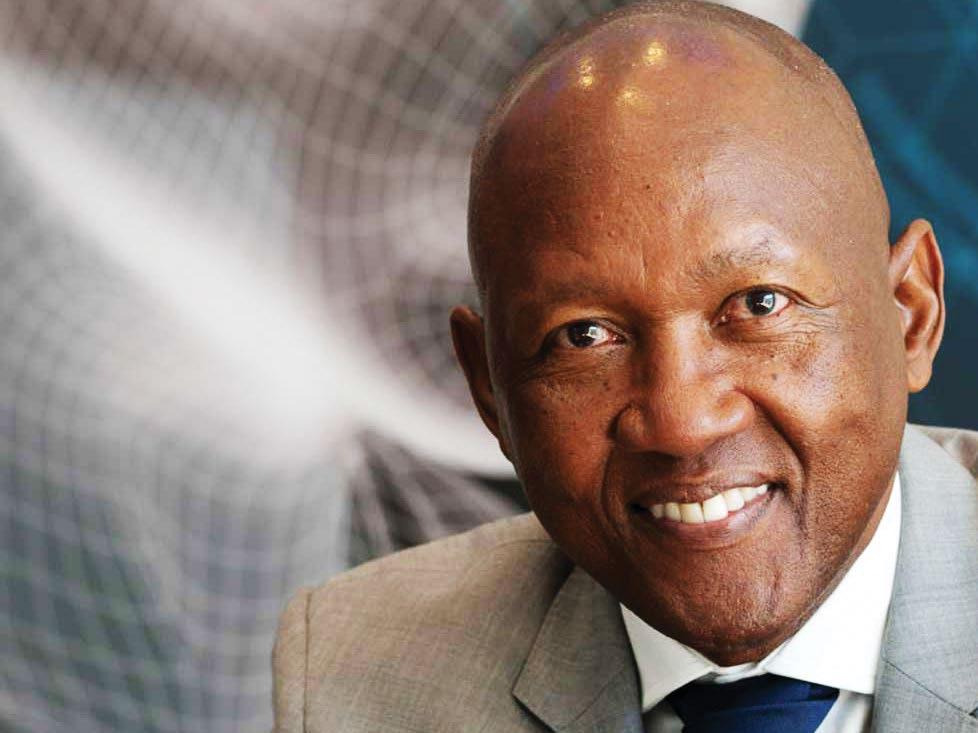
Unveiling his mission, Dibetso, a seasoned leader in technology and digital solutions, said he believed Africa was ready for the digital transformation.
“We do not want to be left out in this race because we feel the next level of
jobs for our youth will come from the digital platforms across the continent,” said Debetso, adding, “I think this is the right time for me to try, and I feel the rest of my career has prepared me for this as digital transformation is my specialty.”
Dibetso said he is driven to make Inq an impact-driven entity and leave an outstanding legacy at the end of his tenure.
“I am looking for more innovative ideas, but to share some of my philosophies, the first thing that led me to this role is impact. My mission is to make sure that inq. is an impact-driven company. Impact will be at the core of everything that we do, and making sure that the countries and the communities
that we operate in are in a different and more advanced place,” said Dibetso.
To foster the spirit of ingenuity across Africa, inq. Group will hold a hackathon in 2024 for shortlisted universities around the continent to develop AI-based solutions through its Botswana office.
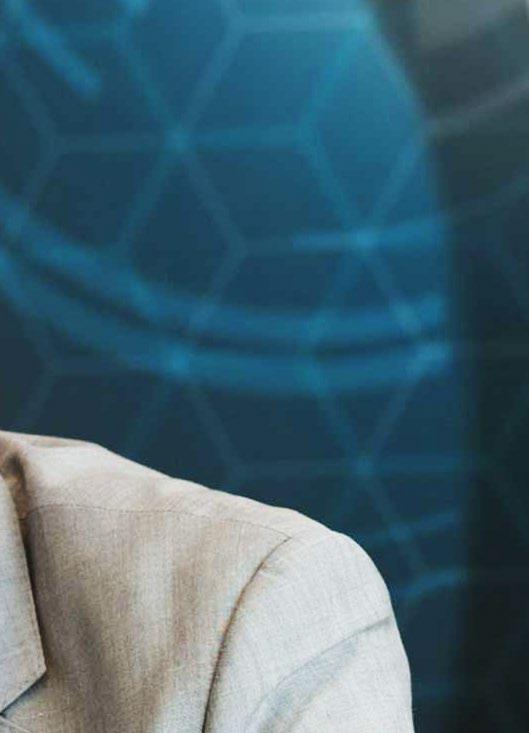
According to Tshepo Tsheko, MD of inq. Botswana, the hackathon will begin with participating public and private universities at the national level. The winners from each participating country will face off in the finals in Gaborone, Botswana.
Tsheko explained that inq. will give participants the tool kits for building microcontrollers along with other materials for developing solutions that meet the hackathon criteria.

As the winter chill begins to wane and nature starts to bloom, Cresta Marakanelo Limited, a renowned name in the hospitality industry, is all set to usher in the vibrant spirit of spring across its hotel properties throughout the country. With a commitment to providing exceptional guest experiences, the leading hotel chain is preparing to roll out a series of offerings that align perfectly with the rejuvenating essence of the season.
Lorato Tebogo, the Head of Marketing and Communications at Cresta Marakanelo Limited, expresses the company’s anticipation for this delightful transition. “Spring is not just a change in season; it’s a transformation of the very environment around us. At Cresta Marakanelo, we believe in providing our guests with experiences that mirror the beauty and vitality of the seasons. With spring at our doorstep, we are excited to extend our renowned hospitality in ways that resonate with the optimism and renewal that this season represents.”
Tebogo’s words encapsulate the philosophy that has guided Cresta Marakanelo Limited over the years - an unwavering commitment to enhancing guest experiences through thoughtful innovation and heartfelt service. With a portfolio of hotels that span picturesque landscapes and urban hubs, the company is uniquely poised to cater to a diverse array of traveler preferences.
The upcoming spring season promises a host of captivating experiences for guests who choose to stay at any of Cresta Marakanelo’s properties. From blooming gardens and open-air dining options to outdoor wellness activities that embrace the natural beauty surrounding the hotels, guests can expect
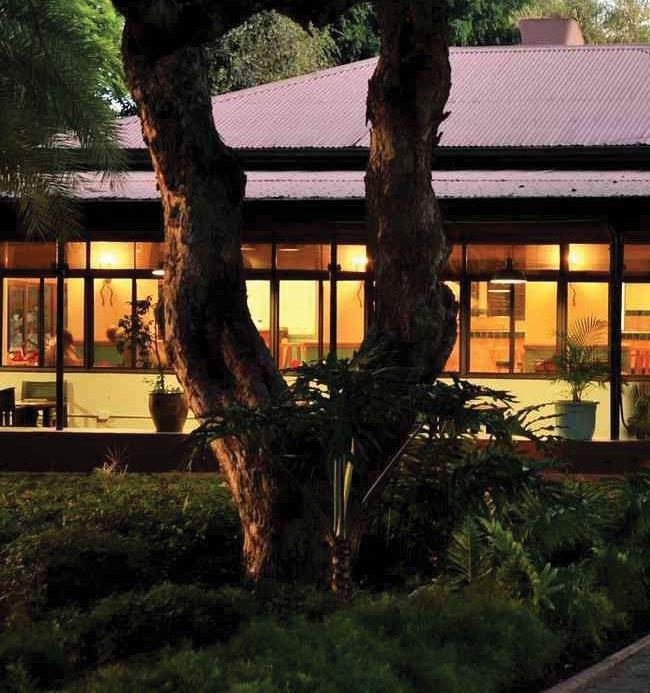
It’s a transformation of the very environment around us
to indulge in an enchanting blend of relaxation and exploration.
Tebogo elaborates, “Incorporating the essence of spring into our offerings requires more than just superficial changes. It’s about curating an experience that resonates with our guests’ desire for rejuvenation and connection with nature. Our culinary teams are crafting menus that showcase seasonal ingredients, our staff is being trained to recognize and cater to the unique needs of spring travelers, and our facilities are being prepared to offer a seamless blend of comfort and the outdoors.”
Cresta Marakanelo Limited’s reputation for excellence in hospitality is a result of its dedication to understanding and exceeding guest expectations. This approach has helped the company maintain its standing as a thought leader in the industry. Tebogo’s vision for spring hospitality perfectly embodies this commitment and reflects the company’s proactive approach to evolving guest needs.
As the spring season approaches, Cresta Marakanelo Limited’s hotels across the country stand as beacons of warmth, renewal, and the promise of unforgettable experiences.
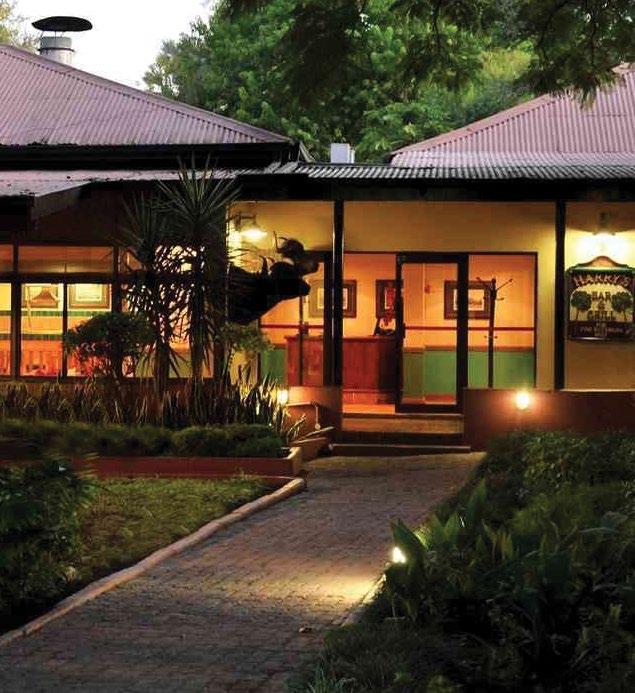








CREATING NEW OPPORTUNITIES FOR REGIONAL EXPANSION

• Bonds and Guarantees
• Domestic Trade Credit Insurance
• Export Trade Credit Insurance
• Medium and Long Term Export Credit Insurance
• Outward Investment Insurance
MEDIUM AND LONG TERM EXPORT CREDIT INSURANCE (MLT)
Who Qualifies?
Botswana Businesses taking part in projects of a capital nature in a foreign country, requiring some form of financing; with payment terms spanning between 3 and 15 years.
What Is Covered?
MLT proctects businesses from losses owing to political and commercial risks.
Political risks covered include confiscation, currency convertibility expropriation, creeping expropriation, nationalization, Transfer of earnings to Botswana war and civil war.
OII is an economic development instrument used to level the playing field between doing business in Botswana and doing business in a foreign country. OII protects an investor against risks which are outside his/her control in the host country where investment is made.
Who Qualifies?
Botswana Businesses investing in foreign countries.
What Is Covered?
Investment insurance cover protects against events, actions or occurrences which are generally known as political risks which result in an investor suffering financial loss.
Political risks covered include expropriation, creeping expropriation, nationalization, war and civil war.
Eliminating Risk,Propelling Growth
+267 3188015
www.facebook.com/beci.bw/
mlt@beci.co.bw or beci@beci.co.bw
